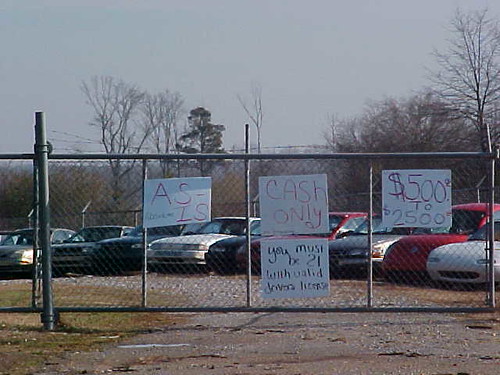Recent Events
Secretary LaHood Announces Recovery Act Funding for Greenhouse Gas and Energy Reduction. On March 24, USDOT Secretary Ray LaHood announced the availability of $100 million in federal funding under the American Recovery and Reinvestment Act, 2009, for the Transit Investments for Greenhouse Gas and Energy Reduction grant program. Projects will compete for a portion of the funds on the basis of how much their proposed capital investment is expected to reduce either energy consumption or greenhouse gases, or both, among other measures. FTA will post application instructions and additional information on its website atwww.fta.dot.gov.CLEAN TEA Bills Introduced to Reduce Greenhouse Gas Emissions. On March 11, US Senators Thomas Carper (D-Del.) and Arlen Specter (R-Penn.) and Representative Earl Blumenauer (D-Ore.) with several co-sponsors, introduced legislation that would establish a low greenhouse gas transportation fund (S. 575 and H.R. 1329). The Clean Low-Emissions Affordable New Transportation Equity Act, or CLEAN TEA, would be funded by 10 percent of the money generated from the auction of greenhouse gas emissions allowances in a climate change bill. For more information, see the text of H.R. 1329.
EPA Seeks Comment on Annual U.S. Greenhouse Gas Inventory. On March 4, EPA released a draft of their annual inventory of U.S. Greenhouse Gas Emissions and Sinks: 1990-2007. The report indicates that CO2 emissions from transportation sources were 0.34 percent higher in 2007 than in 2006. The draft report will be open for public comment through April 9.
Reps. Waxman and Markey Release Draft of Joint Energy and Climate Legislation. The draft of “American Clean Energy and Security Act of 2009,” released on March 31, includes a proposal for a cap and trade program and several provisions related to the transportation sector. It includes requirements to establish transportation-related greenhouse gas emissions goals and inclusion of a plan to achieve those goals in some metropolitan long-range transportation plans and transportation improvement programs. The legislation also calls for greenhouse gas emission standards on new vehicles including heavy duty on-road and non-road, marine, locomotive, and aircraft engines. Full text of the proposed legislation is available here
State News
CaliforniaReleases Proposed Regulations for Low Carbon Fuel Standard. On March 5, 2009, the California Air Resources Board released proposed regulations for a Low Carbon Fuel Standard (LCFS), which would require transportation fuel providers to lower the life-cycle carbon intensity of their fuels over the next decade. For more information, see CARB’s website for the rulemaking.
Pew Center for Global Climate Change – State Climate Action Plans. The Pew Center keeps a database of comprehensive Climate Action Plans which have been completed by many states. For more information, see the Pew Center’s State Climate Action Plans Clickable Map.
Announcements
DOE Funding Available for Transportation Projects that Conserve Energy. The America Recovery and Reinvestment Act of 2009 appropriated $3.2 billion for The Energy Efficiency and Conservation Block Grant Program. Transportation strategies are eligible for funding. Eligible transportation projects include, but are not limited to:
- Employee flex time programs;
- Promoting use of satellite work centers;
- Development and promotion of zoning guidelines or requirements that promote energy efficient development;
- Development of infrastructure such as bike lanes and pathways and pedestrian walkways;
- Synchronization of traffic signals;
- State/locals/regional integrated planning activities (i.e. transportation, housing, environmental, energy, land use) with the goal of reducing greenhouse gas emissions and vehicle miles traveled;
- Incentive programs to reduce commutes by single occupancy vehicles;
- Improvements in operational and system efficiency of the transportation system such as implementation of intelligent transportation system (ITS) strategies;
- Idle-reduction technologies and/or facilities to conserve energy, reduce harmful air pollutants, and greenhouse gas emissions from freight movement; and
- Installation of solar panels on interstate rights-of-way to conserve energy in highway operations and maintenance activities.
For more information about the funding, including deadlines and how to apply, see DOE’s EECBG Homepage.
2009 Transportation, Planning, Land Use and Air Quality Conference to focus on Climate Change. The conference, sponsored by the Transportation Research Board, FHWA, and others, will explore the latest research in the coordination of transportation, land use and air quality with a specific focus on climate change strategies. The conference will be held in Denver, CO July 28 and 29, 2009. For more information, visit theconference website.
Asset Management and Adapting to Climate Change Webinar, April 23. FHWA’s Office of Asset Management in cooperation with AASHTO is conducting a webinar that will provide an overview of climate change and management of highway infrastructure and will focus on the issue of adapting transportation infrastructure to the effects of climate change. This is one in a series of free webinars that FHWA and AASHTO conduct quarterly to provide support to transportation agencies as they develop and implement asset management programs. The webinar will be held 1:00-2:30 Eastern Time. To connect, click here and dial 1-800-988-0375, code CCW for the audio.
Job Opening: FHWA Sustainable Transport and Climate Change Team Leader. FHWA is seeking a GS-15 Team Leader to head our recently formed Sustainable Transportation and Climate Change Team. The position is open to all applicants and closes April 7. For more information and to apply, see the OPM job announcement number FHWA.HEP-2009-0007.
Reminders
U.S. DOT Launches Web-Based Clearinghouse of Transportation, Climate Change Resources. The USDOT has launched a new, web-based clearinghouse of information on transportation and climate change. The site provides an introduction to climate change and transportation and related information on greenhouse gas inventories and forecasts, methodologies for analyzing greenhouse gases from transportation, climate change and adaptation, and federal, state and local actions on transportation and climate change. The site also includes a calendar of events and will soon be enhanced to provide an opportunity for users to post and respond to discussions and receive updates by email. To access the site, go to: http://climate.dot.gov.
Transportation Research Board Starts a New Climate Change website. Transportation Research Board (TRB) has a new website offering information on TRB activities and products addressing transportation and climate change. To access the site, go to: http://tris.trb.org/climatechange/.
If you have any suggestions for inclusion in future issues of Transportation and Climate Change News, or if someone forwarded this newsletter to you and you would like to receive it directly in the future, please send your suggestions or request to Becky Lupes at Rebecca.Lupes@dot.gov.









